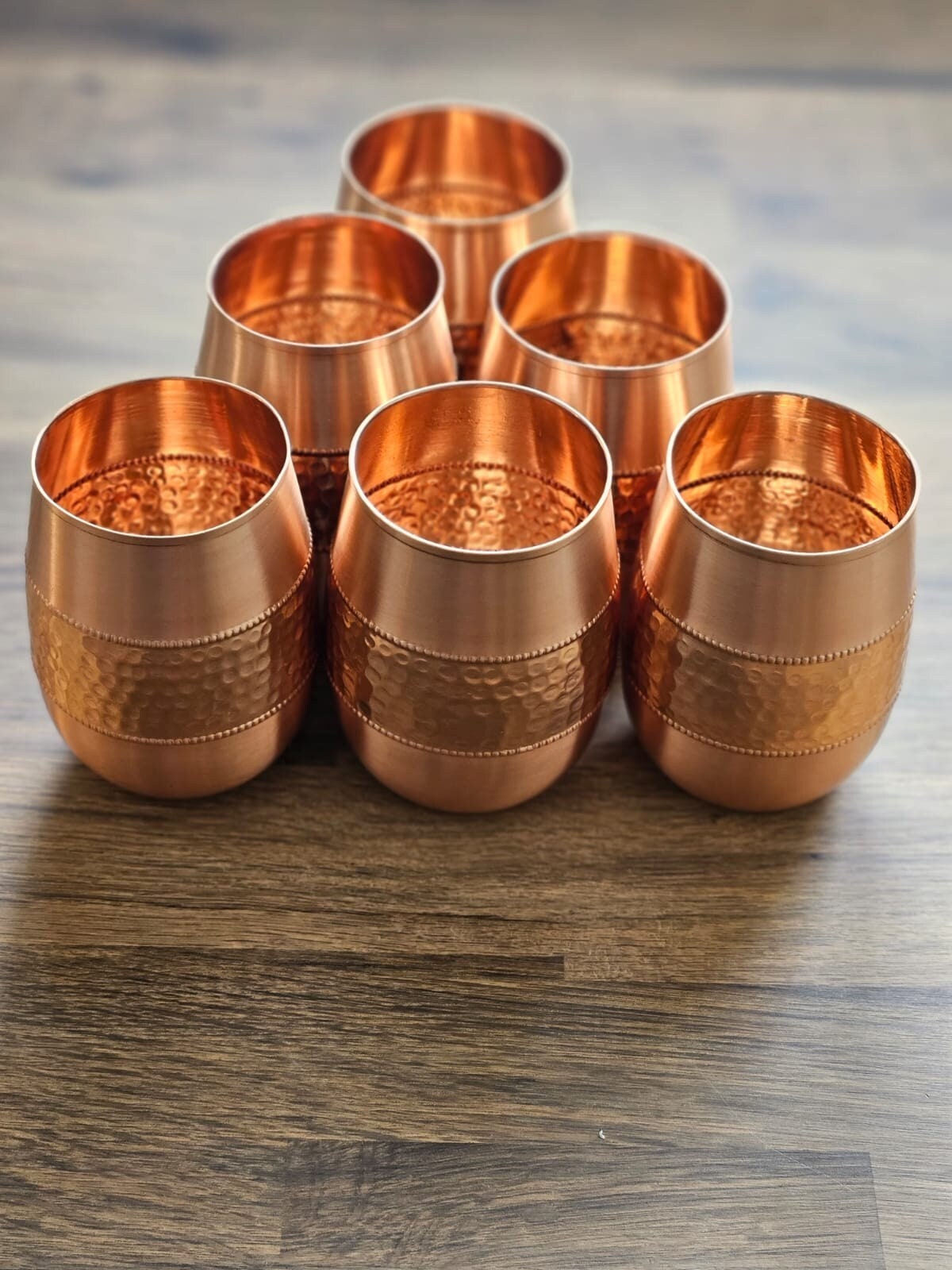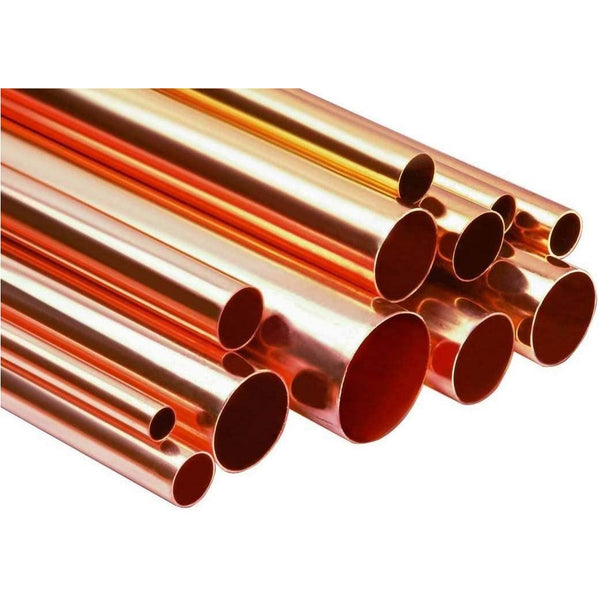The Ultimate Guide to Lasting Coping With Eco-Friendly Copper Products
The Ultimate Guide to Lasting Coping With Eco-Friendly Copper Products
Blog Article
Discovering the Diverse Applications of Copper Products in Modern Industries
From enhancing the efficiency of electrical systems to playing an important role in renewable energy innovations, the versatility of copper is noticeable. As sectors progressively prioritize innovation and sustainability, the varied applications of copper warrant a closer examination, specifically regarding their potential impact on future environmental methods and technical improvements.
Electrical Applications of Copper
Copper is a vital product in the electrical industry, accounting for approximately 60% of the complete demand for non-ferrous metals around the world - Copper Products. Its remarkable electric conductivity, which is virtually twice that of light weight aluminum, makes it the recommended selection for a wide variety of electric applications. From electrical wiring systems in household and industrial buildings to high-voltage power transmission lines, copper guarantees performance and dependability in electrical power shipment
Along with wiring, copper is important to the manufacturing of electrical components such as transformers, generators, and motors. These components take advantage of copper's thermal conductivity and malleability, essential for heat dissipation and efficient performance. Furthermore, copper's resistance to rust improves the life expectancy and longevity of electrical systems, making it a cost-efficient solution in the long term.
The development of sustainable power sources, such as solar and wind power, has actually further raised the need for copper in electrical applications. As markets change towards lasting energy remedies, copper's function ends up being a lot more crucial. On the whole, the adaptability and efficiency characteristics of copper solidify its condition as a keystone product within the electrical market, driving technology and performance throughout various applications.
Pipes and Piping Solutions
In modern pipes systems, the choice of products significantly affects both capability and longevity. Copper has actually become a preferred alternative due to its one-of-a-kind residential properties, consisting of corrosion resistance and antimicrobial features. These qualities make certain that copper piping continues to be safe and sturdy for transferring safe and clean water, a critical factor to consider in property and industrial applications.
Among the crucial advantages of copper in plumbing is its ability to endure high temperatures and stress, making it suitable for a range of applications, from warm water systems to home heating and cooling down networks. In addition, copper's flexibility allows for easier installation in complicated piping layouts, decreasing the risk of leakages and failings.
Another noteworthy advantage is copper's lengthy life-span, commonly surpassing 50 years with appropriate maintenance. This durability not just lessens replacement expenses but likewise adds to sustainable techniques by minimizing waste. Moreover, copper's recyclability straightens with modern environmental criteria, promoting a round economic situation within the pipes market.
Copper in Renewable Resource
The adaptability of copper expands beyond plumbing applications, playing an important role in the renewable resource market. Its superb electric and thermal conductivity makes it an essential material in the production and circulation of renewable resource resources, specifically solar and wind power. In photovoltaic panels, copper is made use of in solar cells and circuitry, promoting effective energy conversion and transmission. Its resistance to corrosion makes certain long-lasting efficiency, which is important for optimizing power outcome gradually.

Furthermore, as the international demand for electrical vehicles (EVs) boosts, copper's role in battery systems and charging framework comes to be a lot more significant. The product's capability to carry out power effectively is indispensable to the performance of EV batteries, boosting range and charging rate.
Copper's Role in Electronic devices
Electronics manufacturing depends greatly on copper's phenomenal buildings, specifically its high electric conductivity and thermal performance. These qualities make copper an optimal option for a large range of digital components, consisting of adapters, circuit card, and electrical wiring. The metal's ability to successfully transmit electrical signals makes sure minimal power loss, which is important in high-performance electronic gadgets.
In addition, copper's thermal conductivity plays a significant function in warm dissipation, protecting sensitive components from overheating. This is especially crucial in modern-day electronic devices, where compact designs lead to enhanced warm generation. Copper is likewise preferred for its malleability and ductility, allowing it to be quickly formed right into complex designs that meet the demands of advanced electronic applications.
With the rise of customer electronic devices, telecommunications, and electric lorries, the demand for copper in the electronics industry proceeds to expand. As innovations in innovation evolve, copper continues to be integral to achieving higher performance and dependability in digital items. Its recyclability further improves its allure, as makers seek lasting options without endangering top quality. Thus, copper continues to be a foundation material in the ever-expanding field of electronics.
Cutting-edge Uses in Production

One significant application remains in additive production, where copper-based materials are used in 3D printing procedures. This permits the development of light-weight components and intricate geometries, particularly in the aerospace and vehicle industries. Furthermore, copper's thermal conductivity makes it an ideal selection for warm exchangers, enhancing performance in commercial cooling systems.
Moreover, the surge of wise production has seen the consolidation of copper in IoT gadgets, where its try this website conductive capacities support advanced noticing technologies. In the realm of renewable energy, copper is critical in the manufacturing of solar panels and wind generators, facilitating a lot more reliable energy conversion and circulation.
As sectors strive for sustainability and advancement, copper's versatility and performance continue to position it as an important product, driving improvements in manufacturing and adding to the growth of smarter, extra reliable items.
Conclusion
In summary, copper products show remarkable adaptability throughout different modern-day sectors. Copper Products. Their premium conductivity boosts electric applications, while deterioration resistance makes sure dependability in plumbing. The essential duty of copper in eco-friendly power and its essential feature in electronics underscore its importance in advancing sustainable methods. Furthermore, innovative usages in making highlight copper's versatility and withstanding value. Collectively, these applications illustrate copper's important contribution to technical development and commercial effectiveness in contemporary culture.
From enhancing the effectiveness of electric systems to playing an essential duty in renewable power technologies, the adaptability of copper is evident. As industries increasingly prioritize technology and sustainability, the varied applications of copper necessitate a closer exam, particularly regarding their possible influence on future ecological practices and technical Website innovations.
The growth of eco-friendly power resources, such as solar and wind power, has better enhanced the demand for copper in electric applications. Generally, the flexibility and performance characteristics of copper strengthen its standing as a cornerstone material within the electric industry, driving advancement and performance across different applications.
The versatility of copper prolongs past pipes applications, playing a vital function in the eco-friendly power field.
Report this page